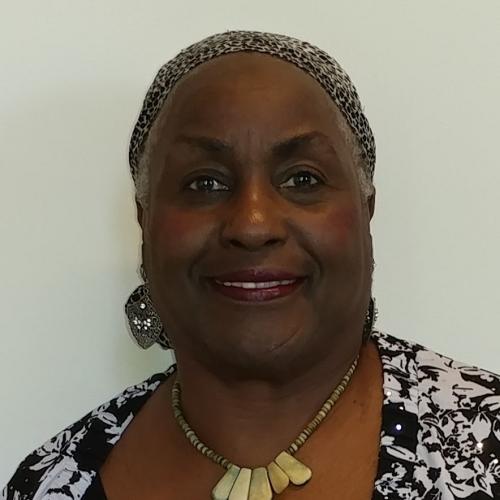You are here
Women's Health Week
National Women's Health Week is a national effort to raise awareness about steps women can take to improve their health. Nathional Women's Health Week begins on Mother's day, May 12, 2019. During National Women's Health Week, Women are encouraged to:
- Visit a doctor or nurse for a well-woman visit (checkup) and preventative screening.
- Get Active.
- Eat Healthier.
- Pay attention to mental Health, including getting enough sleep and managing stress.
- Avoid unhealthy behaviors, such as smoking.
The focus is on the importance of incorporating simple preventative and positive healthy behaviors into every day life. It encourages women to make their health a priorety, and it reminds them to take steps for better health at every age. 3 of our esteemed faculty. Dr. Catherine Burnette, Dr. Marva Lewis, and Dr. Leia Saltzman have published research in association with women's health.
Dr. Catherine Burnette

Dr. Burnette was drawn to women’s health disparities research related to U.S. Indigenous Peoples (e.g. Native American, American Indian, Alaska Native, and/or Native Hawaiian) due to many of the distinct strengths demonstrated by these peoples as well as the high disparities related to violence, mental, and physical health. After conducting research on “how to conduct culturally sensitive research” she began working with tribes of the Southeast related to violence against women and children, mental health, substance abuse and health. She has a strong focus on Indigenous women cancer survivors, sex differences in cardiovascular health and related factors, and changing gender roles and how these affect health and social well-being. Her work now extends cross-nationally. Given there has been a lack of culturally relevant frameworks to explain disparities, she has worked in collaboration with tribes to develop the ecological “Framework of Historical Oppression, Resilience, and Transcendence”, which identifies and organizes culturally relevant risk and protective factors across community, family, and individual levels. The FHORT situates disparities in relation to their structural causes (i.e., historical oppression and trauma) and acknowledges the tremendous strengths Indigenous peoples demonstrate through resilience and transcendence. Since coming to Tulane in 2013, she has published over 40 peer-reviewed journal articles, and presented at over 60 national and international conferences on such topics. She has been involved in federally-funded research to address violence and health disparities using culturally relevant intervention approaches. Dr. Burnette now works to develop a culturally adapted evidenced-based program (EBP) to prevent substance abuse and violence among Indigenous families. The focus on family resilience and culturally grounded intervention programs aligns with the centrality of women to family and culture in Indigenous support systems. She also works to identify sex differences in social and cultural determinants of health related to the health disparities of diabetes and related disorders (e.g., cardiovascular disease), cancer, in addition to mental health and substance abuse. Dr. Burnette approaches this work using a wellness approach, incorporating mental, physical, social, and spiritual aspects of health.
Dr. Marva Lewis

Dr. Lewis’ research addresses sociocultural factors that impact parenting styles, violence in partner relationships, and child maltreatment. The application of her research promotes the positive benefits of the daily task of combing hair as an opportunity for mothers to connect with their infants and young children, culture, and community. The findings from research have been translated into manualized curricula titled, ‘Talk, touch and listen while combing hair.©’ The goals of the programs are to: strengthen mother-child attachment; recognize emotions and the negative impact of intergenerational messages of acceptance and rejection of children based on skin color (colorism) and hair type that originated in the historical trauma of slavery; build community and social support among parents; and to increase parental self-efficacy. The community-based programs are designed to compliment case management services or educational services offered to parents and their children by community agencies.
Recent publications:
Lewis, M. L. (2018). A Tool to support childbirth educators to help women cope with loss of a pregnancy due to domestic violence. International Journal of Childbirth Educators. 33 (2) 36-41.
Crawford, D.E., Lewis, M. L., Bartholomew, M. & Joseph, S. (2018). Enhancing parent participation with hospitalized children using The Gentle Hair Brushing Routine©. Pediatric Nursing. Vol. 44/N0. 4 pp. 169-175.
Wennerstrom, Haywood, Wallace, Sugarman, Walker, Bonner, Sutton, Keller, Lewis, Springgate, Theall (2018). Creating Safe Spaces: A Community Health Worker-Academic Partnered Approach to Addressing Intimate Partner Violence. Ethnicity & Disease, 28, Supplement 2, 317-324.
Osofsky, J. D., Lewis, M. L., & Szrom, J. (2018). The adverse childhood experiences of very young children and their parents involved in infant-toddler court teams. Retrieved from, http://www.qicct.org/sites/default/files/ACES%20Policy%20Brief%20%20v4%20%28003%29.pdf
Lewis, M. L. McConnico, N., Anderson, R. (In Press). Making Meaning from Trauma and Violence: The influence of culture and traditional beliefs and historical trauma. In Eds. J. D. Osofsky, B. M. Groves, Violence and Trauma in the Lives of Children. Praeger Publishers.
Lewis, M. L. (In production). The Intergenerational Transmission of Protective Parenting Responses to Historical Trauma. In (Editors) H. E. Fitzgerald, D. Johnson, D. Qin, F. Villarruel, and J. Norder. The Impact of Prejudice Youth through Adolescence, Volume II, Chapter 3. Springer Publishers.
Wilson, I., Mblishaka, A., & Lewis, M. L. (In press) “White folks ain’t got hair like us”: African American Mother-Daughter Hair Stories and Racial Socialization. Women, Gender, and Families of Color.
Butler-Byrd, N. et al Lewis, M. L. (Accepted). ‘If her Hair Isn’t Right, then I’m Not a Good Mother’: Hair combing interactions, an everyday challenge and opportunity to enhance well-being in the lives of Black girls and women. A special issue of Women and therapy.
Dr. Leia Saltzman
Dr. Leia Y. Saltzman is an Assistant Professor at Tulane University in the School of Social Work and Coordinator for the Disaster and Collective Trauma Certificate . In 2018, Dr. Saltzman was selected as a Fellow in the prestigious Building Interdisciplinary Research in Women’s Health (BIRWCH) program. BIRWCH fosters collaboration between junior and senior faculty with shared research interests in women’s health and sex-difference research. Her specific research focuses on the role of time in the process of reconfiguration following trauma and loss; in particular, the association between loss, trauma, and cardiovascular disease in women. In a recent analysis of 1085 middle aged adults in the United States who participated in the Midlife in the United States (MIDUS) Project, Dr. Saltzman found that in comparison to male respondents who had not experienced a loss, both women and men who had lost a close loved one in the last 7-12 years were more likely to present with an elevated average heart rate (an indicator of cardiovascular health). Interestingly, being a woman who had experienced a loss was associated with a higher average heart rate as compared to a man who had experienced a loss – suggesting sex differences in the risk of cardiovascular disease among respondents who had lost loved ones. Finally, for both men and women, incidences of childhood maltreatment (i.e. abuse and neglect) were not predictive of average heart rate in respondents, suggesting that there are also differences in the cardiovascular outcomes of survivors of trauma and individuals who are bereaved.
In addition to examining and analyzing traditional data sets, Dr. Saltzman is focused on the use of technology and it’s ability to provide greater insight and real-time information in her area of study. In her current research, the use of wearable technology to monitor a number of physiological factors features prominently in her data collection methods. By leveraging the latest technology to increase validity and lessen the impact on the subjects along with highly rigorous analysis have led to a number of current and pending publications for Dr. Saltzman.